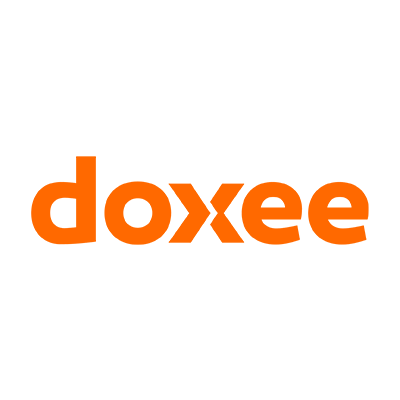Marketing is a department that goes hand in hand with creativity and analytical skills. Therefore, it requires a team that goes in both directions, simultaneously. The success of a marketing strategy is not the result of the work of a single person, but comes as a result of the collaboration of people with different experience and skills. It is the result of a cohesive and collaborative team that combines knowledge, skills, and professionalism to pursue specific objectives.
But is it possible to do all this from a distance? We talk about it with Enrico Celotto, Global Marketing Director at Doxee.
1. You’ve already been working remotely for some time and often manage your team from Milan. What impact does working remotely have on your everyday life?
Working remotely allows me to be more efficient, for several reasons. For one, I’m able to start working in the time that I would normally use for my commute to the office, and I’m able to minimize distractions and interruptions that impact concentration and focus. It’s really important to plan out your day, and even better if you can anchor your schedule to daily routines and habits. It’s very common for people who work from home to never disconnect. This is why it’s so important, both for your physical and mental health, to balance your day and make sure that you dedicate some time to yourself.
2. You and your team are used to “smart working.” What advice do you have for other teams about how to create and maintain a climate of autonomy and trust in a distributed team?
Let’s start by saying that if you don’t trust your colleagues, you don’t trust yourself and your ability to select people like you who will contribute passionately and honestly. This is a very important aspect to take into account. In general, it is very important to define measurable, ambitious, but always achievable goals.
For a manager, it’s important that you are always available to offer the support and information that your team needs to do their job in the best possible way. It’s also important to constantly involve your team members, making them feel part of the team, and at the same time, bolstering their confidence and their sense of ownership for the activities they are responsible for.
3. On the practical side, how do you manage web projects in marketing in an agile way with a remote team?
We use agile work organization methodologies such as SCRUM or KANBAN, which makes it easy to track activities and to optimize processes based on the activities and the tasks required.
It’s also important to anticipate issues or challenges that might come up, to make sure the team is aligned on complex projects or tasks, and essentially, to make sure that you are facing the day as a team, not just as individuals. Above all, it’s essential to keep communicating—within the team, with the rest of the organization—using every tool at your disposal to make sure you are still interacting with your colleagues, as if you were in the same building.
4. Marketing is about creativity, and creativity is often born from collaboration between people. Is it possible to guarantee this when teams are working remotely?
Today, distance is no longer a limitation. We have so many effective tools that we can use to share information and opinions, to find common ground. However, it’s important to remember that, despite all the advantages of these tools, they are not great at conveying emotion; email, for example, is a channel that is typically not very “empathic.” Creative processes do not escape these issues, and can be even more influenced by them.
So, it’s extremely important to have a language that leaves no room for misunderstandings and above all, to switch to more direct channels, such as the telephone, even at the slightest hint of miscommunication.








